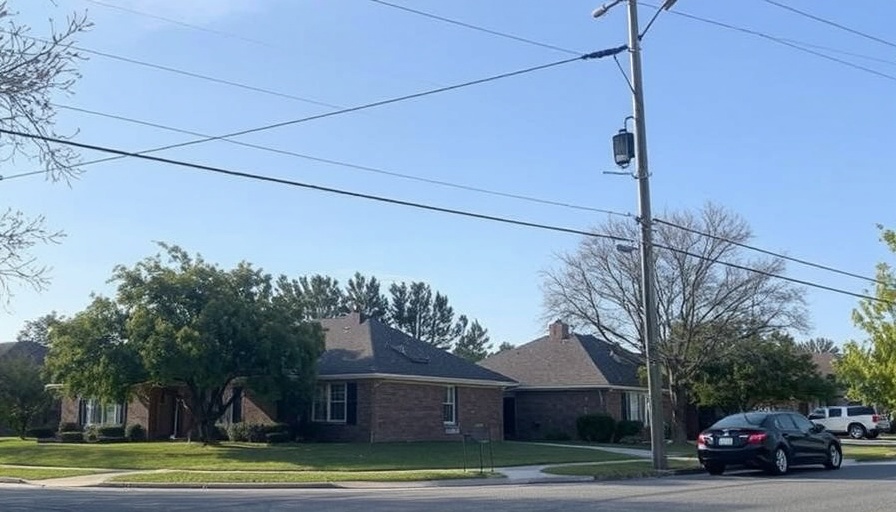
A Harrowing Incident in Little Elm
In the quiet town of Little Elm, Texas, a simple Saturday turned perilous for Robert Harris and his family when a swatting call turned their peaceful afternoon into chaos. Little did they know that a hoax 911 call would lead to their front door being stormed by heavily armed police officers responding to reports of a violent situation at their home.
'I didn’t know what was happening,' Harris later said, recalling the moment officers banged on his door. The situation escalated quickly when they received calls claiming someone in the house had been shot, causing law enforcement to respond in full force, fearing the worst.
The Threat of Swatting
Swatting is not just a prank; it carries severe implications for those involved. Officers responded to an emergency call alleging gunfire and threats on Winterberry Lane, leading to streets being blocked off and families placed in undue fear. Since the initial report, no arrests have been made, raising concerns about the consequences and psychological impact on innocent victims.
This incident highlights the stark reality and dangers of swatting, a practice that has gained attention in recent years, particularly in the digital age where anonymity can fuel dangerous pranks. Harris expressed concern over how he might have reacted had he thought an intruder was breaking into his home. With a concealed carry permit, he feared the scenario could have escalated instead of defused.
The Emotional Impact on Families
The fear that enveloped the Harris household serves as a reminder of the emotional toll such dangerous pranks can inflict. Krista Harris, Robert's wife, was left reeling as she saw police officers pointing high-powered firearms through her front window. She described her shock as they conducted a safety check inside the home. 'I can’t even describe all the emotions I felt in that moment,' she stated, still shaken by the experience.
The psychological ramifications of such incidents extend beyond that day. Families can experience long-term anxiety and safety concerns, feeling vulnerable in what should be their sanctuary. The fear of being misidentified as a threat can linger, affecting daily life and interactions within their community.
A Community Response
With the incident sparking discussions around public safety in Little Elm and the greater Dallas area, community responses are vital. Residents are encouraged to remain vigilant and report suspicious activities calmly and accurately, ensuring that law enforcement resources are not misused. Schools and community centers are also discussing enhancing educational programs around safety and responsible reporting.
This unfortunate episode emphasizes the importance of understanding the implications of such hoax calls. The household did not receive any restitution for the emotional distress caused, as swatting remains an under-discussed issue in public forums.
Future Actions and Safety Measures
There is a pressing need for communities to implement stronger policies and preventative measures against swatting. A collaborative approach between law enforcement, local government, and community members could effectively combat this issue. Initiatives such as awareness campaigns, educational workshops, and stricter penalties for false reporting could dissuade potential offenders from engaging in this dangerous prank.
Conclusion: Stand Against Swatting
The harrowing experience of the Harris family raises awareness of the dangers associated with swatting, reflecting a growing issue that could affect any community. As part of the local Dallas community, it’s crucial to join in the fight against such irresponsibility and prioritize safety. Together, communities must work to alleviate fears surrounding police responses while ensuring that swatting has lasting consequences for those who perpetrate it.
The Harris family’s story is a reminder that even in our home, safety cannot be taken for granted. Everyone should support their fellow neighbors and advocate for the appropriate measures to protect innocent families from such traumatic events in the future.
 Add Element
Add Element  Add Row
Add Row 



Write A Comment